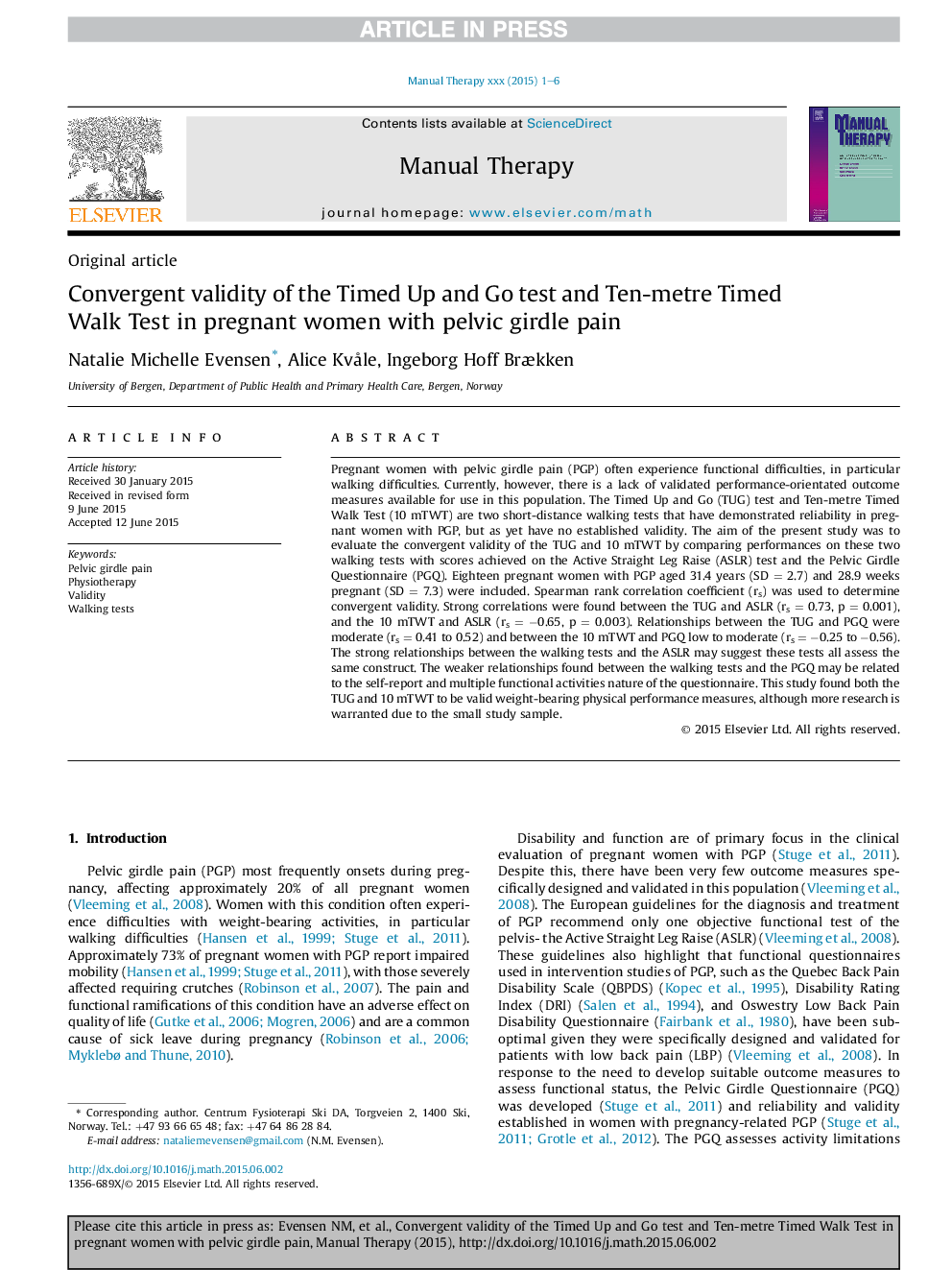| Article ID | Journal | Published Year | Pages | File Type |
|---|---|---|---|---|
| 5864588 | Manual Therapy | 2016 | 6 Pages |
Abstract
Pregnant women with pelvic girdle pain (PGP) often experience functional difficulties, in particular walking difficulties. Currently, however, there is a lack of validated performance-orientated outcome measures available for use in this population. The Timed Up and Go (TUG) test and Ten-metre Timed Walk Test (10 mTWT) are two short-distance walking tests that have demonstrated reliability in pregnant women with PGP, but as yet have no established validity. The aim of the present study was to evaluate the convergent validity of the TUG and 10 mTWT by comparing performances on these two walking tests with scores achieved on the Active Straight Leg Raise (ASLR) test and the Pelvic Girdle Questionnaire (PGQ). Eighteen pregnant women with PGP aged 31.4 years (SD = 2.7) and 28.9 weeks pregnant (SD = 7.3) were included. Spearman rank correlation coefficient (rs) was used to determine convergent validity. Strong correlations were found between the TUG and ASLR (rs = 0.73, p = 0.001), and the 10 mTWT and ASLR (rs = â0.65, p = 0.003). Relationships between the TUG and PGQ were moderate (rs = 0.41 to 0.52) and between the 10 mTWT and PGQ low to moderate (rs = â0.25 to â0.56). The strong relationships between the walking tests and the ASLR may suggest these tests all assess the same construct. The weaker relationships found between the walking tests and the PGQ may be related to the self-report and multiple functional activities nature of the questionnaire. This study found both the TUG and 10 mTWT to be valid weight-bearing physical performance measures, although more research is warranted due to the small study sample.
Related Topics
Health Sciences
Medicine and Dentistry
Complementary and Alternative Medicine
Authors
Natalie Michelle Evensen, Alice Kvåle, Ingeborg Hoff Brækken,
